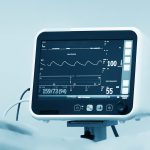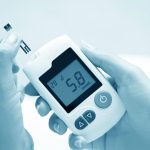The medical device industry has witnessed tremendous growth over the years, with groundbreaking innovations improving patient care worldwide. However, developing a medical device is no small feat – particularly when it comes to clinical trials. These trials are critical in ensuring the safety and effectiveness of a device, but they come with their own unique set of challenges. This is where a medical device clinical consultant plays a vital role.
In this article, we’ll explore the top 5 challenges in medical device clinical trials and discuss how consultants can help overcome these hurdles.
Introduction
The road from concept to market for a medical device is often a long one, filled with various stages of design, development, testing, and regulatory approval. One of the most critical components of this journey is the clinical trial process. For medical devices, clinical trials are more than just a formality – they ensure that the device works as intended and is safe for patients.
However, running a successful clinical trial is no easy task. Medical device companies often face unique challenges that can delay or even derail their progress. That’s why partnering with a medical device clinical consultant has become a smart strategy for navigating these complex waters.
Let’s dive into the top challenges encountered in medical device clinical trials and see how experts can provide solutions to these challenges.
Understanding the Complexity of Medical Device Clinical Trials
Medical device trials differ significantly from pharmaceutical trials. While drug trials often focus on how a medication interacts with the human body, medical device trials examine both the safety and functionality of a physical product. These trials require different methodologies, and regulations tend to vary depending on the type of device and the region where the trial takes place.
Here are the top 5 challenges companies often face during medical device clinical trials and how medical device clinical consultants can assist in overcoming them.
Challenge #1: Regulatory Compliance
One of the most significant challenges in medical device clinical trials is navigating the complex and ever-changing landscape of regulatory requirements. Different countries have different regulatory bodies – such as the FDA in the United States or the EMA in Europe – each with its own stringent guidelines. Ensuring compliance with these regulations is paramount for a successful trial.
How Consultants Assist with Regulatory Challenges
A medical device clinical consultant stays updated on global regulatory standards and can guide companies in complying with the necessary approvals and documentation. Consultants can help with:
- Understanding and interpreting the regulatory requirements for specific device classifications.
- Preparing regulatory submissions, such as Investigational Device Exemptions (IDEs) or Clinical Trial Applications (CTAs).
- Communicating with regulatory authorities to ensure smooth and timely approvals.
By streamlining the regulatory process, consultants help reduce delays and avoid costly errors, ensuring that the clinical trial moves forward efficiently.
Challenge #2: Patient Recruitment and Retention
Recruiting the right patients for a medical device trial can be incredibly difficult. Not only must the patients meet specific eligibility criteria, but they also need to be willing to participate in the study for its entire duration. High dropout rates can significantly impact the validity of a trial’s results.
Consultants’ Role in Streamlining Recruitment
A medical device clinical consultant can help by:
- Developing targeted recruitment strategies based on the trial’s demographics and device use.
- Partnering with experienced trial sites to access a reliable pool of patients.
- Implementing patient retention programs, such as regular follow-ups and providing comprehensive education about the trial process.
Consultants ensure that patient enrollment is done quickly and efficiently while minimizing the risks of patient dropout.
Challenge #3: Designing Effective Clinical Trial Protocols
Creating a well-structured clinical trial protocol is essential for producing reliable results. However, designing a protocol that balances scientific rigor with regulatory requirements and practical feasibility can be challenging.
How Consultants Ensure Trial Design Success
Medical device clinical consultants are skilled in developing protocols that address:
- Defining clear objectives and endpoints that align with regulatory expectations.
- Establishing appropriate sample sizes and patient inclusion/exclusion criteria.
- Ensuring that the trial design is scalable and adaptable in case mid-study modifications are required.
With consultants’ input, companies can develop protocols that not only meet scientific and regulatory standards but are also feasible and manageable within the trial’s scope.
Challenge #4: Data Management and Quality Assurance
Maintaining the integrity of clinical data is crucial for regulatory approval. From data collection to analysis, every step must adhere to Good Clinical Practice (GCP) guidelines. Poor data management can lead to inaccurate results, delays, and even regulatory rejections.
Role of Consultants in Data Integrity and Reporting
A medical device clinical consultant offers robust data management solutions, ensuring:
- That data is collected accurately and securely through validated systems.
- Proper documentation is maintained for regulatory audits.
- Data is analyzed in a statistically sound manner, reducing the risk of errors and misinterpretations.
Consultants can also oversee the implementation of electronic data capture (EDC) systems and ensure that all data processes align with GCP and ISO 14155 standards.
Challenge #5: Managing Costs and Timelines
Medical device clinical trials can be expensive, and staying within budget while meeting deadlines is often a daunting task. From operational costs to unexpected delays, there are numerous factors that can derail the timeline and inflate costs.
Consultants’ Strategies for Cost and Time Management
Medical device clinical consultants specialize in project management and can implement cost-saving measures without compromising trial quality. Some strategies include:
- Developing a detailed project timeline with built-in contingency plans for delays.
- Outsourcing tasks to specialized vendors that offer cost-efficient solutions.
- Regularly monitoring trial progress to prevent budget overruns and ensure timely delivery of key milestones.
By focusing on optimizing resources and streamlining processes, consultants help companies achieve their trial objectives on time and within budget.
How Medical Device Clinical Consultants Provide End-to-End Support
From the early planning stages to post-market surveillance, medical device clinical consultants provide support at every step of the trial process. Their expertise allows companies to focus on innovation while leaving the operational complexities of clinical trials in expert hands.
Some additional areas where consultants provide value include:
- Risk management and mitigation strategies.
- Ensuring compliance with ethical guidelines and patient safety regulations.
- Facilitating communication between trial sites, sponsors, and regulatory bodies.
In short, medical device clinical consultants serve as invaluable partners in ensuring that clinical trials are not only compliant but also efficient and successful.
Conclusion
Navigating the complexities of medical device clinical trials is a challenging task. From regulatory compliance to patient recruitment, data management, and cost control, each phase of the process presents its own set of obstacles. However, with the support of an experienced medical device clinical consultant like MakroCare, companies can mitigate risks, ensure compliance, and bring their devices to market more efficiently.
By leveraging the expertise of consultants, medical device companies can focus on what matters most – innovation and patient care – while leaving the operational complexities of clinical trials to the experts.



